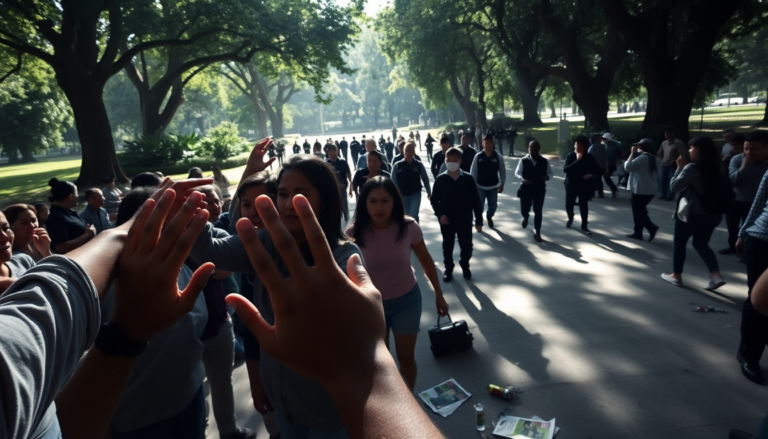Argomenti trattati
In a country already riddled with political turbulence, the recent shooting of Colombian presidential candidate Miguel Uribe Turbay is just another damn reminder of how far the political discourse has sunk. Shot three times, twice in the head no less, while trying to connect with his supporters at a park in Bogotá, Uribe’s fate now hangs by a thread. What does it take for this nation to wake up and realize the crisis that is staring them right in the face?
The chaos unfolds
Picture this: a politician, microphone in hand, rallying his followers with promises of change and a brighter future. Then, out of nowhere, chaos erupts as shots ring out. Those gathered, perhaps hoping for a moment of unity, are sent into a frenzy, scattering like roaches when the lights are turned on. The police swiftly apprehended a 15-year-old suspect, a chilling reminder that not only is the political climate dangerous, but it’s also breeding a generation of misguided youth willing to commit unspeakable acts. What does that say about society? That they are so starved for attention and power that they’ll pull the trigger without a second thought?
A call for prayers amidst the madness
Uribe’s wife, Maria Claudia Tarazona, urged the nation to pray for her husband’s survival. “Miguel is currently fighting for his life,” she implored, as if her pleas could somehow shield him from the reality of the situation. But let’s be honest, can prayer really fix a broken political system? Or is it just another way to distract from the fact that violence is becoming the norm rather than the exception? One could argue that it’s easier to light a candle than to confront the raging fires of political corruption and discontent.
Political party reactions
Uribe’s own party, Centro Democratico, labeled the attack a direct threat to democracy and freedom in Colombia. Well, isn’t that rich? As if their own rhetoric hasn’t stoked the flames of hatred and division. They’re quick to condemn the violence now, but where were they when their own actions contributed to this toxic environment? It’s all too easy to play the victim when the tables turn, isn’t it?
The aftermath: surgery and scrutiny
After being airlifted to the Santa Fe Foundation hospital, Uribe underwent surgery for his life-threatening injuries. The hospital’s update on his condition was grim, stating he remains in an extremely serious state. Meanwhile, the government of President Gustavo Petro, who has been at odds with Uribe, expressed condemnation of the attack. Funny how quickly they can unite against a common enemy, yet remain divided on everything else that matters. And let’s not forget, this incident has ignited a firestorm of debate over the very essence of democracy in Colombia.
Violence: a political tool?
As if we needed another example, the shooting has drawn attention to the violent rhetoric that has permeated Colombian politics. Uribe himself is no stranger to using provocative language, so it’s almost poetic justice that he now finds himself on the receiving end of the chaos he helped create. Is it a coincidence that just a week prior tensions were at an all-time high? Petro sought public support for his reforms, and opposition figures, including Uribe, labeled it unconstitutional. The irony is thick enough to slice with a knife.
Historical echoes
For many, the attack is reminiscent of Colombia’s dark past, when political figures were frequently targeted by drug cartels and rogue elements. As Bogotá’s Mayor Carlos Fernando Galán stated, “We cannot return to situations of political violence.” But isn’t that just the way history works? One generation’s fight for survival becomes another’s reckless power play. It’s a cycle that keeps on spinning, with no end in sight. So, what’s next? More hollow promises to change, or will they finally put their money where their mouth is?
Looking ahead: the future of Colombian politics
With the government struggling to maintain order, the question is: can they truly deliver on a promise of peace? The recent surge in violence has left many doubting their ability to govern. If the political elite can’t even protect their own, how can they expect citizens to feel safe? Uribe, a critic of Petro, has thrown his hat in the ring for next year’s presidential election, making his survival even more critical. But let’s not kid ourselves; regardless of who wins, the underlying issues will remain.
As this tragedy unfolds, it serves as a stark reminder that in Colombia, the game of politics is not for the faint of heart. It’s a brutal arena where the stakes are nothing less than life and death. Whether Uribe recovers or not, the political landscape will continue to evolve, and one can only hope that it doesn’t spiral further into the depths of despair.

